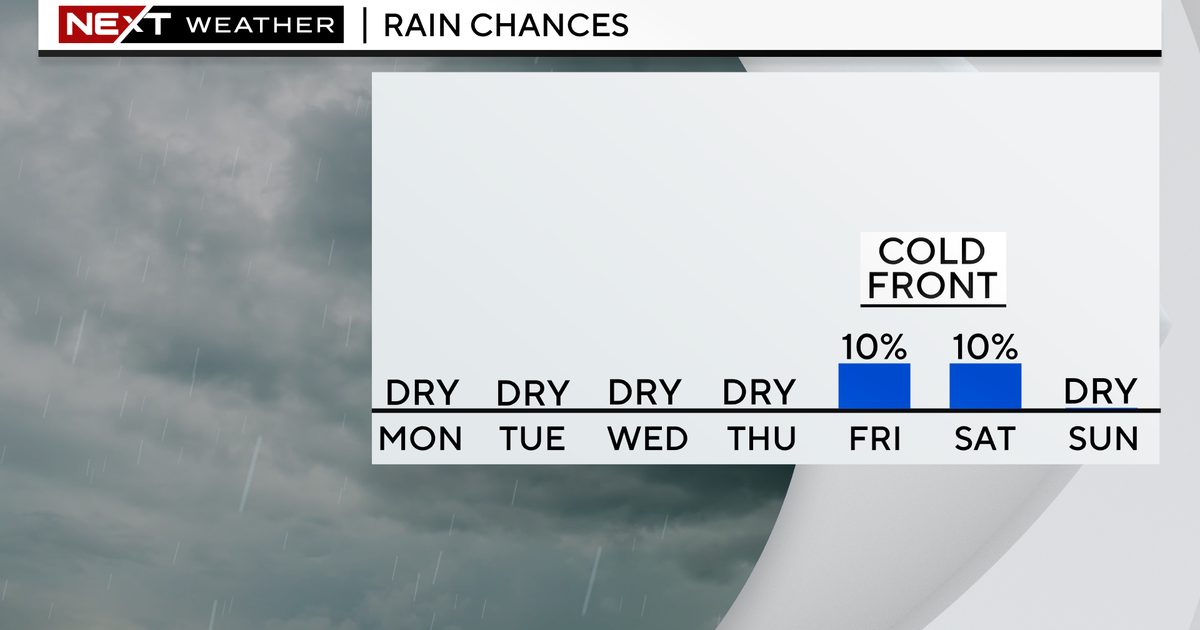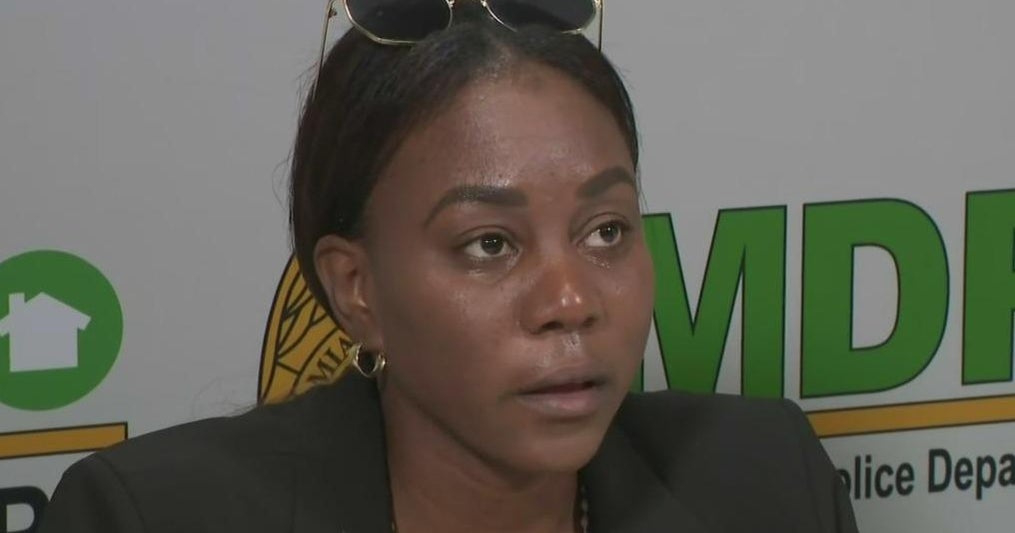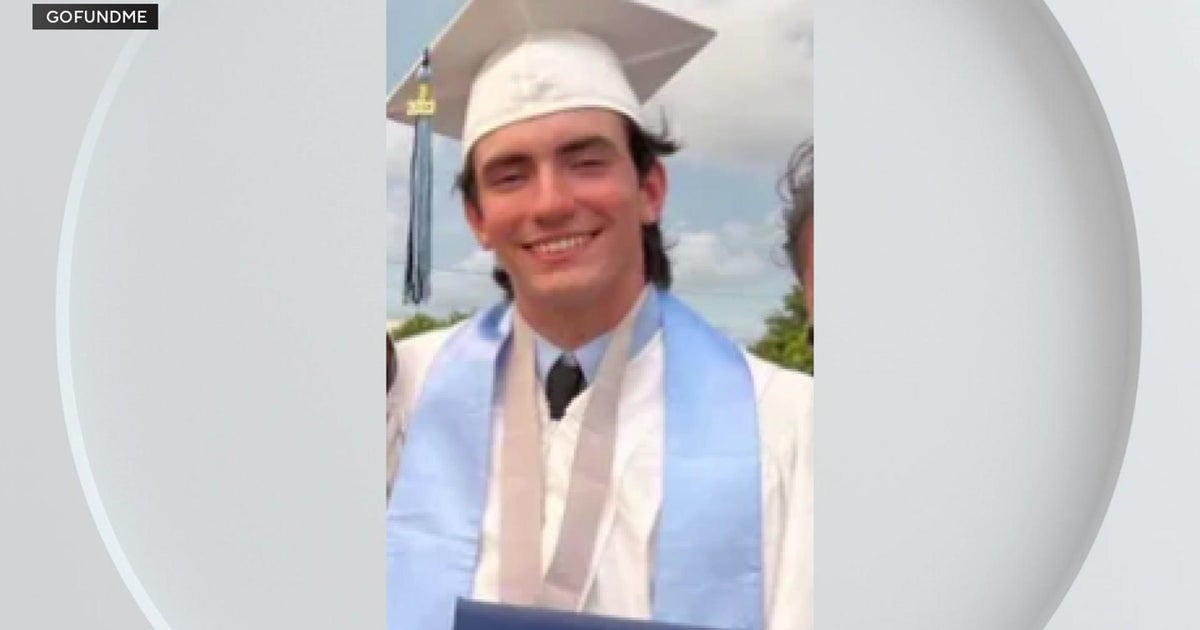Haiti Death Toll Rises To 283 As Receding Waters Reveal More Bodies
Follow CBSMIAMI.COM: Facebook | Twitter
LES CAYES, Haiti (CBSMiami/AP) — Haiti's death toll continues to climb as rescue crews reach the remote corners cut off when Hurricane Matthew slammed into the country's southwest peninsula, the first Category 4 storm to hit Haiti in more than a half century.
Bodies started to appear as waters receded in some areas two days after 145 mph (235 kph) winds smashed concrete walls, flattened palm trees and tore roofs off homes, forcing thousands of Haitians to flee.
A Haitian Interior Ministry official said hurricane's death toll is now 283, and authorities expected the number to rise. Mayors and other local officials in marooned areas were reporting higher numbers.
Overall, 128 confirmed deaths have been attributed to Matthew in the Caribbean.
Those killed in Haiti included a woman and her 6-year-old daughter who frantically abandoned their flimsy home and headed to a nearby church to seek shelter as Matthew surged in early Tuesday, said Ernst Ais, mayor of the town of Cavaillon.
"On the way to the church, the wind took them," Ais told The Associated Press.
At least 12 people died in his town, and Ais said he expected the number to increase.
Officials were especially concerned about the department of Grand-Anse on the northern tip of the peninsula, where 38 of the known deaths were reported, the highest toll for any area.
"Devastation is everywhere," said Pilus Enor, mayor of the town of Camp Perrin. "Every house has lost its roof. All the plantations have been destroyed. ...This is the first time we see something like this."
People faced an immediate hunger crisis in Grand-Anse's largest city of Jeremie, said Maarten Boute, chairman of telecom Digicel Haiti, who flew there in a helicopter.
In the nearby seaport of Les Cayes, many people searched for clean water as they lugged mattresses and other belongings they were able to salvage.
"Nothing is going well," said Jardine Laguerre, a teacher. "The water took what little money we had. We are hungry."
Authorities and aid workers were just beginning to get a clear picture of what they fear is the country's biggest disaster in years.
Interior Minister Francois Anick Joseph said food and water were urgently needed, noting that crops had been leveled, wells inundated by seawater and some water treatment facilities destroyed.
Officials with the Pan American Health Organization warned Thursday about a possible surge in cholera cases because of the widespread flooding caused by Matthew. Haiti's cholera outbreak has killed roughly 10,000 people and sickened more than 800,000 since 2010, when it was introduced into the country's biggest river from a U.N. base where Nepalese peacekeepers were deployed.
Before hitting Haiti, the storm was blamed for four deaths in the Dominican Republic, one in Colombia and one in St. Vincent and the Grenadines.
Haiti's government has estimated at least 350,000 people need some kind of assistance.
International aid groups are already appealing for donations for a lengthy recovery effort in Haiti, the hemisphere's least-developed and most aid-dependent nation.
When Category 4 Hurricane Flora hit Haiti in 1963, it killed as many as 8,000 people.
In the coming days, U.S. military personnel equipped with nine helicopters were expected to help deliver food and water to hard-hit areas.
While recovery efforts continued in Haiti, Matthew pummeled the Bahamas on Thursday. There were no immediate reports of casualties in the capital of Nassau, but the storm ripped off roofs, uprooted trees and caused flooding that trapped some people in their homes. Authorities urged people to stay indoors while they conducted search and rescue operations.
"This is the most intense hurricane I have ever been through," a Nassau resident, 43-year-old Jose Ageeb, said in a message to the AP. "And I have been through many."
He rode out the storm with his family, including his 73-year-old mother, as he posted a video on Facebook of winds peeling off a nearby roof.
"I am completely terrified," he wrote, adding that his home was almost intact except for floors being covered in water.
In Cuba, Matthew blew across that island's sparsely populated eastern tip Tuesday night, destroying dozens of homes and damaging hundreds in the island's easternmost city, Baracoa. But the government oversaw the evacuation of nearly 380,000 people and strong measures were taken to protect communities and infrastructure, U.N. officials said.
(TM and © Copyright 2016 CBS Radio Inc. and its relevant subsidiaries. CBS RADIO and EYE Logo TM and Copyright 2016 CBS Broadcasting Inc. Used under license. All Rights Reserved. This material may not be published, broadcast, rewritten, or redistributed. The Associated Press contributed to this report.)



